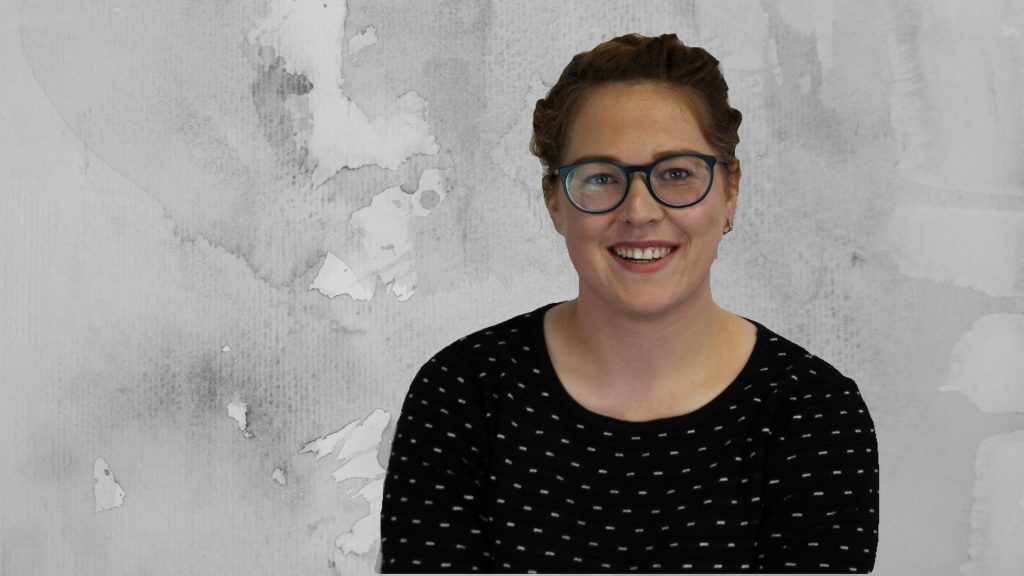I had the pleasure to speak to Ciara O’Riordan about young people, politics and tech. Ciara works for Ecanvasser in Ireland – an app that helps political candidates organise their campaign by connecting the offline- with the online world.
Ciara is a professional in digital marketing and political campaigning, and I wanted to hear her take on why “Millennials” aren’t as prominent in the political landscape as they should be. You can’t argue with the numbers: People under 30 make up 17% of the population (that excludes children); yet, they provide less than 2% of all members of parliament, and rarely hold high political office.
I wanted to know from Ciara: What are the problems young people encounter when getting politically active and how can more young people get a seat at the table?
Ciara, there’s a common misconception that young people are simply not interested in politics. Do you think this is true?
It’s a really easy statement to accept and not question too much, but I don’t agree. What needs to be understood is that there is a difference between party politics and politics. Yes, it is true that young people are not hugely involved with party politics, though I do think there is significant underreporting taking place. We see young people highly active online about a range of policy issues and structural reform on a daily basis. But, in the broader area of politics that encompasses issues, activism and civic engagement, I do think young people are highly engaged. It is just not easy to quantify the level of engagement in terms of membership numbers and so on, because that is not the way it works.
Young people are much more tuned in nowadays that we give ourselves credit for. We saw it here in Ireland in 2015, when the marriage equality referendum was taking place. The backbone of the equality side was a young demographic – they were the most vocal, the most unabashed. That’s being pretty interested in politics I would say.
Once you get down to it, politics is nothing more than people operating with each other, connecting and trying to represent. There isn’t much about that that young people can’t relate to.
And yet, party memberships are steadily declining. Why? Are political parties dead? Can they be revived?
Yes, this is something that I find particularly interesting to talk about and dissect. Young people definitely love an issue-based campaign. Anything that we can see a solution for or something that we cause an impact on, we’ll be onboard with. Like the marriage equality referendum of 2015 I referred to, and more recently the referendum on the 8th amendment, which saw loads of people become politically engaged. This weirdly doesn’t seem to translate to party politics, nor to local and general elections.
I think party membership is affected by cynicism. It’s very hard to make a dent in the long established political wheel. Instead, the temptation would be to run as an independent candidate or even form your own party. We saw this case with Renua in the last Irish General Election. But they were wiped out across the board, as the electorate didn’t see a past, present or future for them. This happens in many countries across Europe too, as we constantly see new parties rise and fall virtually overnight.
Is it disheartening trying to get into politics? Most definitely. But should people just give up? Absolutely not.
Why do you think it is important for young people to take an interest in politics, and more importantly, to take action?
It’s pretty straight forward for me. Politics impacts nearly all aspects of our lives. It’s not something a lot of us see, until we start working or maybe get to college. But it is so important to be tuned in to politics and the repercussions of it. Politics forms the frame of our lives, and the earlier people get involved, the better they will be able to impact on that framing.
Now, I’m certainly not advocating that everyone should be affiliated with party politics or should hold strong opinions on policy or anything but…
I think we need to help people understand that politics and governments’ decisions have big impacts on everyone in society. It’s scary to me at times to see how passive we can be about this. Is it a lack of understanding or is it years of feeling wronged by big party politics? Maybe a mixture of both even.
Young people today, so-called Millennials, are under-represented in political decision making. Why do you think this is the case, and what can be done to fix it?
I hate to use the dreaded Q word but are quotas the answer? Should each party or elected committee have a person who is aged between 18-25 or 20-30? The challenge is that we need more young people running, for more young people to be elected. Most things don’t require complex solutions but only pretty simple ones. I think we should consider offering funding and scholarships for aspiring young politicians. Giving them support so they can succeed, instead of making it easier for them to fail.
Is the future of politics happening online? What is the importance of offline people-to-people relationships?
Campaign strategist Guillaume Liegey talks about Data/Tech/Human to describe the way in which offline face-to-face contact in the community or on the doorsteps fits into the data infrastructure of political organisations. They are not separate – they are connected and supportive of each other. In the same way, if you were to conduct all of your political interactions exclusively online, you would miss whole sections of society that do not interact there.
At present, nothing really beats face-to-face interaction. I love online platforms like Twitter and Instagram, but there is always going to be something lacking. Real life conversations can’t be as easily misconstrued as online ones. How many times a day do we see tone being taken up incorrectly online, no matter how many emojis you use!
There will always be a place online for politics and the discussion surrounding it, but ultimately the action we want to see implemented off the back of it will happen offline. It’s always more effort to do things away from a keyboard. but the results are always a little bit better.
How do you engage politically? How did you get started?
There is so many different ways to be involved in politics. I always admire people who operate on the frontline and the activists who drive the movements that are close to their own hearts.
I would see myself as being very civically minded, and I enjoy working on a local basis in my own community at home. No matter the organisation – grassroots is a fundamental in being successful.
At Ecanvasser, we see ourselves as being architects of democracy. Working as technicians in the political software sector is a great place to be at the moment, because you get to be fully immersed in the campaign cycle. Working with new candidates as they begin their campaigns means you can learn so much and you can also turn all these learnings into useful resources to push out to the next generation of candidates.
What is your motivation for supporting “political beginners” with free resources and advice? Where did you gain that expertise?
The company mission at Ecanvasser is about allowing anyone to run for office. The barrier of entry being lowered is something we spoke about 4 years ago and still talk about everyday in the office. People need to understand that politics is collaborative. So why not share all the useful tips you have to help people reach their goals! That’s why our Campaign Blueprint section is one of our most utilised sections on our website and also why we feel the need to constantly share videos on our Youtube channel.
Everything changes so quickly between election cycles, it’s important for us to always be evolving and trying to stay on trend.
What is your #1 advice for young people who want to get politically involved, but don‘t know where and how to get started?
I think we – all of us, and maybe especially young people – don’t realise the value that we have, whether that is in a work context or in civil society. If you think you are going to be an addition somewhere instead of subtraction, get involved! I think some young people really have that “fear factor” when it comes to putting themselves out there to be judged. We need to lose this and just go for it. It’s as simple as this: you have to start somewhere – so start by joining an issue group or organisation that you are passionate about. Think of politics as an apprenticeship for life, there is so much to learn and many avenues that you can explore. Consider an area that you want to impact and research groups in that area.
Thank you Ciara for this insightful conversation!

 Politics: The Youth Factor
Politics: The Youth Factor